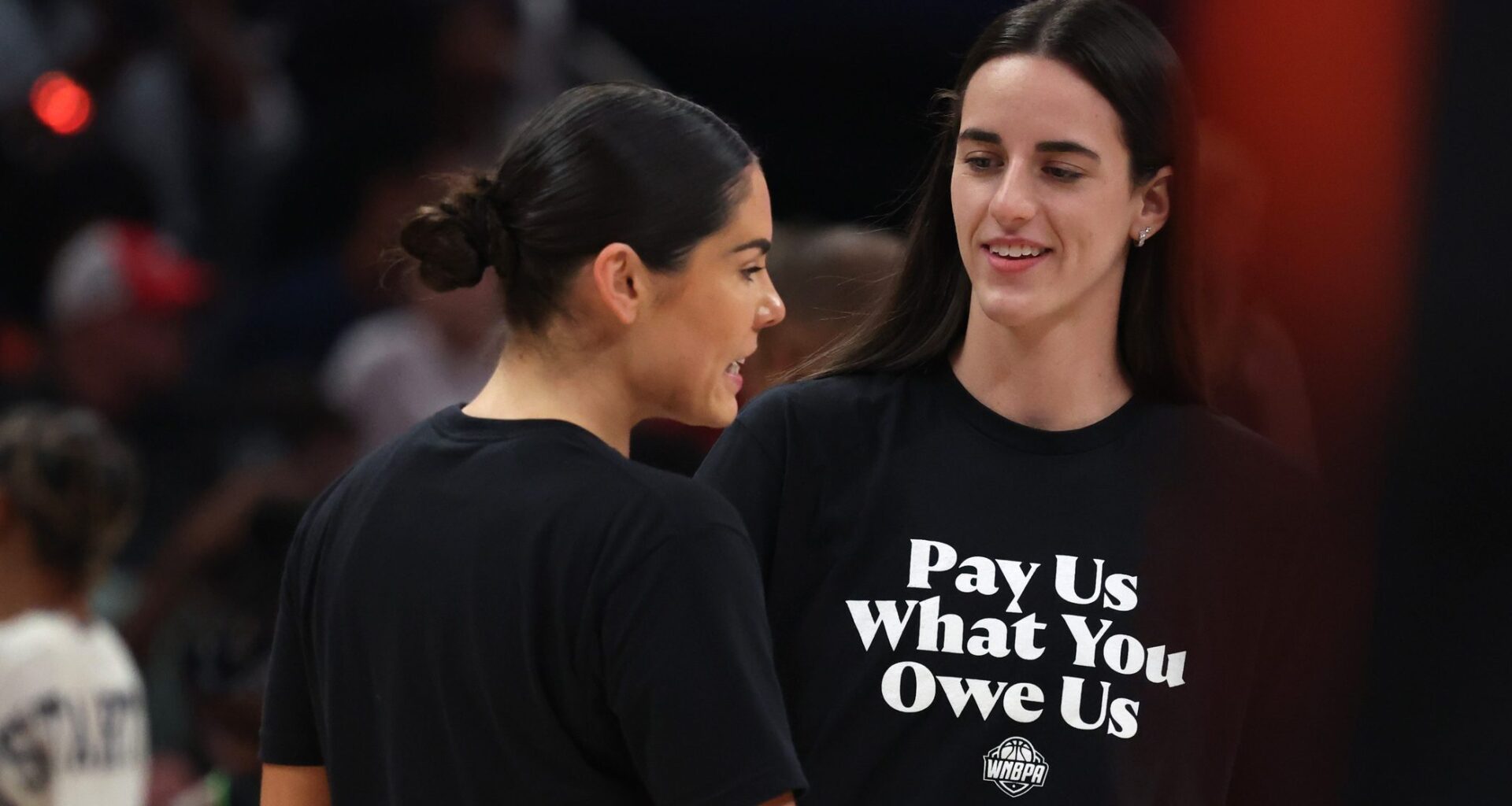Following Saturday’s WNBA All-Star Game, which Team Collier won 151-131 over Team Clark, chants of “pay them!” echoed through the sold-out Gainbridge Fieldhouse.
Those chants were a continuation of a conversation started by the players themselves, who wore black shirts that read “Pay Us What You Owe Us” during warmups. That statement came two days after over 40 players met with the league as part of collective bargaining agreement negotiations and expressed concern that the WNBA was not making enough progress, as an October deadline to avoid a lockout looms.
Those t-shirts and their messaging immediately went viral as intended. And perhaps as expected, responses were split down very predictable lines. On one side were the people defending players and their desire to be compensated fairly for playing in a league that is experiencing a surge in popularity. On the other side were people chastising the players for being entitled and demanding more money from a league that reportedly operates at a loss.
WNBA all stars wearing a “Pay us what you owe us” shirt in warmups pic.twitter.com/jIj2W6N6kw
— CJ Fogler 🫡 (@cjzero) July 20, 2025
It was hard not to notice that many of the people in that second camp are also the same people who have passionately voiced their opinions around “protecting women’s sports.”
That’s not coincidental, as it has long been observed that the same people who are vocal about “defending” women’s sports are also the ones who loudly complain when the women playing in the sports ask for what they want or demand to be treated fairly. It’s also often noted that these supposed champions of women’s sports didn’t seem to care about them, or would make fun of them, until recently.
Former ESPN talent Jemele Hill has certainly noticed the dichotomy over the years and saw it on full display Saturday night.
“Funny how all that protect women’s sports energy went out the window as soon as WNBA players showed up with T-shirts bringing awareness to the lack of financial equity they have in their league,” wrote Hill on Bluesky.
The host of Spolitics elaborated about the topic on X, the everything app.
“Another thing I notice is that all the people saying what these women don’t deserve keep citing the financials from this year, conveniently leaving out that their new media rights deal kicks in next season and is $200 MILLION a year,” she wrote. “The WNBA is adding multiple franchises because there are a line of investors wanting in. The financial trajectory is high. You think billionaires want to be in on bad products? The NBA lost money for over 40 years. Do you think player salaries stayed the same for 40 years? (Hint: They did not).”
The main pushback you saw on social media Saturday against the WNBA players is that a recent report tallied the league’s yearly losses at $40 million. However, as Hill notes, and as ESPN’s Mina Kimes would also note on Bluesky, valuation is more critical than the current balance sheet in these situations (ask any tech company that receives billions in funding despite making no profit). Not to mention a new media rights deal valued at about $2.2 billion.
“For anyone who is saying the comparisons to tech are off—ppl are bending over backwards to invest in this league,” wrote Kimes. “Follow the money.”
The argument is somewhat similar to the one you hear about the NBA and TV ratings. When those ratings seemed low to start last season, certain individuals tripped over themselves to claim the league was in trouble and on the verge of financial ruin. The $76-billion NBA media rights deals that were signed later that season put that laughable idea to bed. It’s likely the same will be the case for the WNBA as it only grows in popularity and reach in the coming years.
Lot of these folks angry that they gotta put up the Baptist finger when they leave the room in front of their boss, so they’re triggered by a group of people who are standing up for what they deserve. https://t.co/49baU45MiA
— Jemele Hill (@jemelehill) July 20, 2025
Hence, the players are demanding that they be compensated in line with the WNBA’s direction. Which, in theory, anyone who is a defender of women’s sports, should get behind. And if they don’t, it should give you pause about how much of a defender they actually are.

